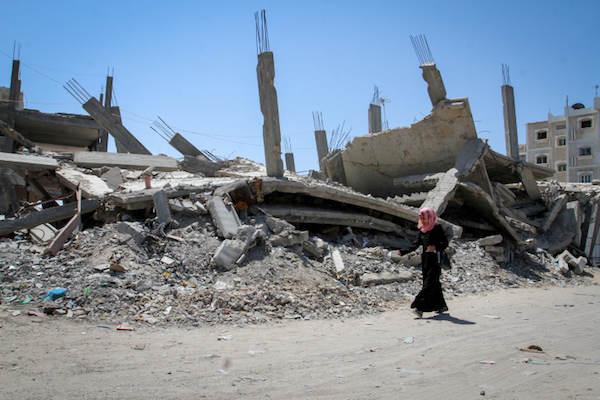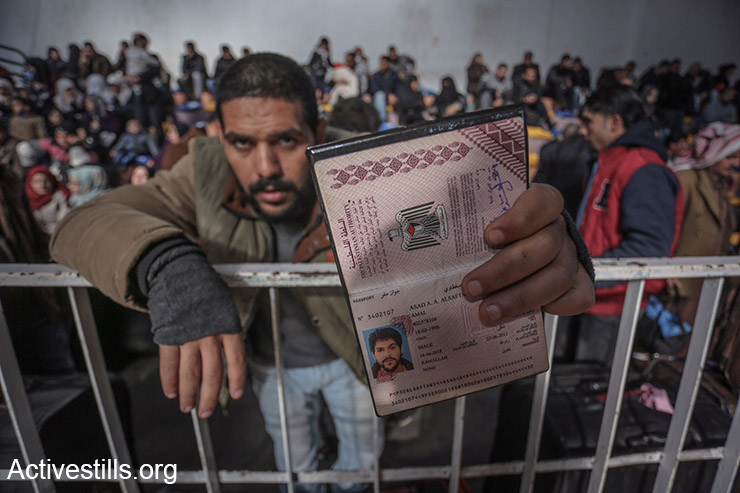I feel guilty for living in a safe country while my family does not. But I want a future, and to start a family with children who don’t know what an F-16 is.
By Abeer Ayyoub

It has been almost an entire year since I left Gaza, although to me it feels as if it was only yesterday. I was lost in Europe — between working, studying, and comparing every single aspect of my life here to Gaza. I left Gaza, but it failed to leave me. I still care about and think of all the loved ones I left behind because I felt that Gaza was too small for my dreams.
Many of my friends left before and after me, and many others are still waiting either for Egypt to open up the Rafah border crossing, or for an Israeli officer to grant them a permit.
One of my best friends, who has been contemplating leaving Gaza for the past year, finally decided to do so last week after he reached the conclusion that Gaza is not getting any better. He wrote me a long message saying the following:
Abeer, when I left Gaza, it felt hard to leave family and friends, and even harder when I had to say goodbye to most of them. I cried all of the way to Jordan, cursing Fatah and Hamas for pushing us to make this decision. Did you feel the same when you left?
I wrote back to him:
No, I was very happy when I left, I felt I was reborn, starting a new life far from injustice and violence. I cried a little when I saw my parents crying. ‘God knows when we will meet again,’ they said. You know, I never told you that when I left Gaza, Hamas security interrogated me at the checkpoint about why I am leaving and when I am coming back. As I walked toward the Israeli side, a Hamas man came running behind me just before I reached the area he is not allowed to cross. He asked me to come back but never said why; I looked at him for a while, me standing there as he looks at me, waiting. I turned my back on him, and on Gaza, ignored his cries of bitterness and ugliness, and walked away. Those cries made it horrible until the very end. I took my phone and filmed my feet moving out of the jail so I could re-watch it later.
Sometimes I cry because I never decided to leave without feeling any pressure, I cry because I feel guilty for living in a safe country while my family does not. I cry because hearing a door slam still scares me, reminding me of where I come from. I cry when the internet back home disconnects during the power cuts, while I am Skyping with Mama, asking her about food recipes.

Some friends say they left their hearts in Gaza, and I feel the same whenever I follow the news on Facebook, Twitter, and WhatsApp groups, sometimes more than the people living there. But no, I think I need my heart, soul, and mind here, to think of my career and future, to start a family with kids who know what a day with 24 hours of electricity is, and who don’t know how to pronounce the term F-16.
Abeer Ayyoub, 30, is a Palestinian journalist from Gaza, and currently a research fellow at Oxford University.

